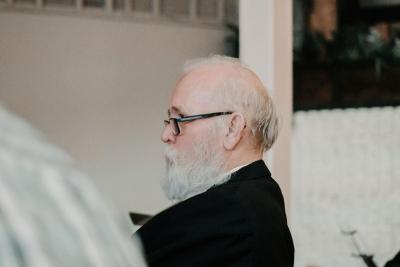一、短语:
1、come back 回来
2、in Londonwith sb.和某人在伦敦
3、be backfrom……从…回来
4、be home回家
5、lastSunday 上星期日
6、ourChinese friend 我们的中国朋友
7、live in 住在…地方
8、live near….住在附近
9、look atthose ice creams 看那些冰激凌
10、go home 回家
11、come withsb.和某人一起来(走)
12、hurry up 快点
13、wait forsb.等某人
14、come from …来自…
15、go to thepark with sb.和某人去公园
16、meet sb.in the park在公园遇见某人
17、Sam andAmy`s friend 萨姆和艾米的朋友
18、by bus 乘公共汽车
19、run to ….跑向…..
20、walk tothe bus 走到公共汽车那儿
21、drop noe`ssth.掉了某人的东西
22、an ice cream一个冰激凌
23、lots of 许多
24、not… atall一点也不(一点也没有)
25、have alovely time 过得很愉快(玩得很高兴)
二、重点句型:
1、When didyou come back?你什么时候回来的?
【“come back”回来,强调“回来”的动作,“be back”也讲“回来”,强调回来的“状态”。】
如:You`re back from China.你从中国回来了。(不强调回来的动作,而是说明人现在不在中国,已经回来的这种情况。)类似:go home回家(强调动作),behome 回家(强调状态)如:We`re home.我们回家了(说明人现在就在家。)【上句中“come back”回来的动作发生在过去,所以要用助动词“did”。答句:We came back last Sunday.我上星期日回来的。所以谓语动词用“came”】
练习:你从中国什么时候回来的?我昨天回来的。
2、Linglingis in London with Sam and Amy.玲玲和萨姆、艾米(现在)在伦敦。
【这个句子中玲玲是主语,所以用“is”,和谁谁,用“with…and…”放在后面。InLondon 在伦敦,前面不能少了动词“be”
这个句子也可以这样说:Lingling,Sam and Amy are in London.但这时三个人作主语,谓语动词必须用“are”.】
练习:我和爸爸妈妈在美国。
3、Do youlive in London,too?Yes,I live near Amy and Sam.你也住在伦敦吗?是的,我住在艾米和萨姆附近。【live in…住在什么地方,livenear…住在什么附近。】
练习:我住在北京,我住在颐和园(the Summer Palace)附近。
4、Let`s buysome.让我们买一些。
【Let`s开头的句子是祈使句,后面跟动词原形(buy).】
再如:Let`s go to school!让我们上学吧!
练习:让我们回家吧!
5、We`regoing home now. John.Come with us.我们现在要回家了,约翰。和我们一起走吧。【”are ging home”是进行时态表示将要发生的事情。】
6、There`sour bus!我们的公共汽车在那儿!
【这个句子是个强调句,是倒装句,正常的语序是:Our bus is there!】
7、I droppedmy ice cream! 我掉了我的冰激凌。
【dropped是drop的过去式,说明动作发生在过去。】
练习:写出下列动词的过去式:go meet buy run
drop Come do have watch
8、I ran tothe bus.我跑向公共汽车。Did Lingling walk to the bus? 玲玲走到公共汽车那儿的吗?
【run to….跑向…;walk to….走向…..。】
9、Did youhave an ice cream yesterday?你昨天吃了一个冰激凌吗?
【have在这儿讲“吃”,一个冰激琳,前面要用“an”。】
10、字母e,ea读/i:/ Chinese teacher ;
I读/l/ river rabbit
e读/e/ letter hen
a读/æ/ cat apple
练习:说出下列词中字母组合读音:
1、cream/ / 2、thank/ / 3、back/ / 4、when/ / 5、with/ / 6、let/ /
11、I had alovely time!我玩的很高兴(痛快)。
【have a lovely time=have a good time=have a greattime=have a wonderful time =enjoy oneself玩得很高兴】
12、I didn`tbuy anything at all.我没有买一点东西。
【not… at all一点也没有。】练习:我一点也不饿。
Keys:1、When did youcome back from China?I came back yesterday.2、I am inAmerica with dad and mum.3、I live in Beijing.I live near the SummerPalace.4、Iet`s go home!7、went ,met,bought, ran, dropped, came,did,had,watched.10、1、/i:/ 2、/æ/ 3、/æ/4、/e/5、/l/6、/e/12、I am not hungry at all.
外研版(三起)五年级英语上册第二模块短语和句型
一、短语:
1、how many+可数名词的复数 多少
2、go to thesupermarket去超市
3、need foodfor our picnic我们的野餐需要食物
4、at thesupermarket在超市
5、read sth.to sb.给某人读......
6、theshopping list 购物单
7、the firstthing第一件事(东西)
8、What`snext?下一个/接下来是什么?
9、how much+不可数名词 多少
10、half akilo 半公斤
11、one/a kiloof noodles 一斤面条
12、five yuan 五元
13、one kilo 一斤
14、Here`reyour oranges. 这是给你的橘子。
15、Here youare.给你。
16、on ourpicnic关于我们的野餐
17、Let`s makea list.让我们列(制作)个清单吧!
18、Whatabout......?......怎么样?
19、All right!好吧!行吧!
20、fivebottles/five bottles of milk五瓶/五瓶牛奶
21、a kilo ortwo?一斤还是二斤?
22、Hereis/are...for you这是给你的.....
二、句型:
1、Let`s go to the supermarket.让我们去超市吧。
【Let`s....让我们.....吧!Let`s=Let us,后面跟动词原形,用来表示提出建议。】
再如:Let`s have our class.让我们上课吧。
练习:让我们进行野餐吧。
2、Can you read the shopping list to me, please?请问,你能给我读一下购物单吗?
【can是情态动词,后面加动词原形。Can you+动词原形.....?是can的一般疑问句的形式。只把“can”提在句首,回答:肯定的:Yes,... can. 否定的:No,...can`t.】
再如:Can we have a dog, please,Mum?请问妈妈,我们能养一只狗吗?No,we can`t.不,我们不能。
练习:你能跑得快吗?不,我不能。
3、How many (bananas)do you want?Six,please.你要多少(香蕉)?请拿六个。
Howmuch cheese do you want? Halfa kilo. 你要多少奶酪?半斤。
【表示“多少”的短语有两个:“how many和how much.”
它们的用法区别是:how many+可数名词的复数;how much+不可数名词;
half akilo 半公斤,one kilo 一公斤。后面要跟什么东西时,要用“of”,如:one/akilo of noodles 一公斤面条。超过一斤时,kilo后面要加“s”.】
再如:How many oranges do you want? Onekilo,please.你要多少橘子?一公斤。
练习:你要多少苹果?请拿五公斤。
你要多少牛奶?我要五瓶。
4、Do you like cheese ,Lingling? No,I don`t.I like noodles.玲玲,你喜欢奶酪吗?不,我不喜欢。我喜欢面条。
【Do you like.....?是like的一般疑问句,行为动词要变一般问句时,要借助助动词do\does\did。】
再如:Do you like bananas?Yes,I do.你喜欢香蕉吗?是的,我喜欢。
练习:昨天他们买冰激凌了吗?是的,买了。
5、What are we going to take on our picnic? 我们的野餐要带什么?
【be going to +动词原形,表示将要做什么,变问句时,把be提前,be要根据主语变化。Onour picnic是“关于我们的野餐”。】
再如:What are you going to do tomorrow?明天你准备干什么?
练习:周末你准备做什么?我准备和妈妈去超市。
6、u, o 读/ ʌ/ 如:duck mother
ar, a读/ɑ:/如:arm glasses
a, er读/ə/ 如:balloon气球 teacher
Ir, ur读/ ɜ:/如: bird nurse
7、阅读:Kate
Kate is a new student. She is twelve. Sheis from America.She can speak English well and she can speak a little (一点点) Chinese. She is in Beijing. Her parents aredoctors. Kate is studying in a school. It’s near (在……附近) her home. She goes to school from Monday to Friday. On Saturdaysand Sundays, she often plays games with her Chinese friends. She loves China and herChinese friends.
Fill in the blanks according tothe passage.
1. Kate is from___________________.
2. She can speak __________well and she can speak a little__________.
3. He parents are__________________.
4. The school is ____________her home.
5. She often play games on___________ and _____________.
Keys:1、Let`s have a picnic.2、Can you run fast?No,I can`t.3、How many apples do you want?Five kilos,please.How muchmilk do you want?Five bottles,please.4、Did theybuy ice creams yesterday?Yes,they did.5、What areyou going to do at the weekend?I am going to go to the supermarket with mum.7、America;English;Chinese;doctors;near;On Saturdays andSundays
外研版(三起)五年级英语上册第三模块短语和句型
一、短语:
1、lots ofplaces许多地方
2、at theweekend在周末
3、go to.....去......
4、theBritish Museum大英博物馆
5、Big Ben大本钟
6、the LondonEye伦敦眼
7、a bigwheel一个大轮子
8、It`swonderful太精彩了
9、send sb. apostcard送给某人一张明信片
10、like....best最喜欢......(like...better更/较喜欢....)
11、the bus ride乘公共汽车(名词短语)
12、lastSunday上星期日
13、go to theGreat Wall去长城
14、go there去那儿
15、at teno`clock in the morning 在早上十点钟
16、walk forone hour步行/走一小时
17、lots ofpeople许多人
18、takephotos of the mountains照了(许多)大山的相片
19、a photo ofhis father一张他父亲的相片
20、go roundand round圆又圆/一圈又一圈
21、high up inthe sky高高在天空
22、go toschool上学/去学校
23、by plane乘飞机
24、seemonkeys 看猴子
二、句型:
1、Whatdid you do at the weekend? We visited lots of places.在周末你们干什么了?我们参观/旅游了许多地方。
【这个句子是询问的过去的事情,助动词用“did”,did后跟动词原形;答语中谓语动词用一般过去时态,“visited”这种形式叫动词的过去式。
一般过去时态:表示动作发生在过去或在过去经常发生的动作和习惯性的动作。谓语动词必须用动词过去式。
动词过去式的变化规则:① 一般情况下,在动词原形后直接加ed。
如:wanted,played。
② 以不发音的字母e结尾的动词,直接加d。
如:hoped,lived。
③ 重读闭音节单词末尾只有一个辅音字母的,需先双写这个辅音字母,再加ed。如:stopped, shipped。
④ 以辅音字母+y结尾的动词变y为i,再加ed。
如:studied,worried。
⑤ 有些动词不符合上面的规则,需要特殊记忆。
如:am(is)-was, are-were, go-went, eat-ate,
swim-swam, buy-bought, see-saw,
teach-taught, bring-brought, think-thought,
fall-fell, hurt-hurt, break-broke, win-won,
lose-lost】
再如:We went to the British Museum.我们去了大英博物馆。(说明动作发生在过去----上周末。)练习:我们送给了你一张明信片。
2、What did you do?你(过去)干什么了?Wheredid you go?你(过去)去哪儿了?
【这两个句子是一般过去时态的特殊疑问句。助动词“did”后要用动词原形。类似的还有:Who went to the Great Wall?谁去长城的?Whendid they go?他们什么时候去的?How did they go?他们怎么去的?】
练习:①你周末去哪儿的?
②你什么时候去的?
③你怎么去的?
④你做什么了?
3、Did Lingling like it?Yes,she did.玲玲喜欢它吗?是的,她喜欢。
【这是一般过去时态的一般疑问句,变一般问句时,动词是行为动词的要借助动词“did”,把助动词“did”放在句首,后面的动词要变成原形(like).答语:Yes,....did.No,....didn`t.而且助动词“did”可用于各种人称,也就是do、does的过去式都是did。】再如:Did you go to the Great Wall lastSunday?Yes,I did.上周日你去长城的吗?是的,我去了。
练习:他们去八达岭了吗?是的,他们去了。
4、请写出课文中出现的动词过去式的动词原形:Visited did
went sent
liked walked
Were took
5、前元音:/i:/ /ɪ/ /e/ /əe/ 发音要点:舌尖抵住下齿背,舌的前部向硬腭抬起,嘴唇向两边拉开,口形由小到大,舌位由高到低。
单元音中元音:/ ɜ:/ /ə/ / ʌ/ 舌身平方,舌的中部稍稍向硬腭抬起,双唇向两旁平伸。
后元音:/ɑ://ɒ/ /ɔ:/ /ʊ/ /U:/口张大,舌身平方后缩,舌尖离开下齿,口由大到小,双唇收的越来越圆,后两个嘴唇向前突出。
o读/ɒ/如:dog fox
or, al 读/ɔ:/如:morning tail
oo读/ʊ/如:book football
ou, oo读/U:/如soup food
Keys:1、We sentyou a postcard.2、①Where did you go at the weekend?②When didyou go?
③How did you go ?④What did you do ?3、Did theygo to Badaling? Yes,they did.4、visit,do,go,send, like,walk, are, take.
三年级我知道:三年级英语期中测验试卷(测试时间:分钟,满分100分)一、下列每组四个单词中,根据它们的意义找出一个与其它三个不同类的单词,把它们的字母编号写在左边的括号中。(10分)()1、A、redB、legC、black()、A、showB、touchC、foot()、A、ZoomB、rulerC、Sarah()、A、bagB、wteC、green()、A、bodyB、waveC、shake二、在右栏中找出左栏每个单词的中文意思,把它的字母编号写在左边的括号里。(0分)()1.yellowA、铅笔().bagB、眼睛().mouthC、尺子().schoolD、黄色的().rulerE、书包().fingerF、紫色的().pencilG、橡皮().eyeH、学校().purpleI、嘴()10.eraserJ、手指三、出拼写正确的单词,将其编号写在前面的括号里。(10分)()1.A.epnB.penC.nep().A.faceB.afceC.fece().A.inpkB.pinkC.pnik().A.yellowB.yollewC.yellew().A.ereserB.eraserC.erasar四、在右栏中找出左栏中每个句子的答语,把它的编号写在左边的括号中。(0分)()1.Goodafternoon.A.Goodmorning!().What’syourname?B.I’mMike.().Hello!C.Fine,thankyou.().Goodbye!D.Great!().Let’sgotoschool!E.Nicetomeetyou,too.().Goodmorning!F.Myname’sJohn.().Howareyou?G.Seeyou!().Nicetomeetyou.H.Goodafternoon.().Let’spaint!I.!()10.Whoareyou?J.OK!五、情景反应。(1分)()1、有一天,你在街上遇见一位很久没有见面的同学,你应该如何问候?A.Whoareyou?B.Howareyou?C.Hereyouare.()、你第一次认识Mike,感到十分高兴,你应该这样说:A.Metoo.B.Nicetomeetyou.C.Goodafternoon.()、John说:“Ilikeyellow.”你的爱好跟他一样,你可以说:A.Great!B.Myname’sBaiLing.C.Metoo.()、老师请你拍手,用英语该这样说:A.Clapyourhands.B.Clapmyhands.C.Snapyourfingers.()、Sarah是长,老师走进教室准备上课,她应该这样说:A.Sitdown.B.Goodmorning.C.Standup.六、请找出下面句子的中文意思,将其编号写在前面的括号里。(1分)()1、Touchtheground.A.交*你的脚。()、Ilikeblue.B.让我们说话。()、Crossyourlegs.C.摸地板。()、Lookatme.D.我喜欢蓝色。()、Let’stalk.E.看着我。七、想想找出答案。嗯 顺便提一下,我目前上的ABC天丅口语的外教和我们说过,其实要掌握好英语是轻松的;必然有个适宜的研习环境跟熟练口语对象 老师水平是关键,纯正欧美口音才是最好 坚持天天口语沟通 1v1针对性教学才能有很.好.的进步效率~学习后需要回放复习录音文档 来进一步深化知识;然后要是真的无口语交谈的人的话,那么就去听力室或爱思获得课余教材练习 多说多问一下子口语能力就培养起来 学习成长会非常快速显着的..(只写编号)(10分)A.redB.yellowC.blueD.blackE.purpleF.orangeG.wteH.greenI.brownJ.pink1、D=()、()=E、()+B=F、()+()=H、G=()[呵呵,也许题目不太好吧]
19.
open the door
打开门
20.
Don’t be late.
别迟到了
.
21.
play with me
和我玩
22.
no one
没有人
23.
clapping games
玩拍手游戏
24.
play
clapping
games
together
一起玩拍手游戏
25.
hurry up
赶快
26.
hide and seek
捉迷藏
27.
play catch
玩捉人游戏
28.
play with them
和他们一起玩
29.
in the playground
在操场上
30.
Are you sad
?
31.
No one is playing with me.
没人和我玩
.
32.
Daming is hiding and Sam is seeking.
大明在藏
,
山姆在找
.
33.
Those girls are playing clapping games
。那些女孩正在玩拍手游戏。
34.
Do you like clapping games?
你喜欢拍手游戏吗
?
35.
Let’s play clapping games together. (
让
)
我们一起玩拍手游戏吧
.
36.
They
’re playing catch.
他们正在玩捉人游戏。
37.
The boys are catching them.
男孩们正在捉她们
.
38.
Can I play with you?
我能和你们
(
一起
)
玩吗
?
Module6
1.
usually
['ju
:
ʒ
u
ə
li]
通常
2.
us
(宾格)我们
3.
ride
[ra
ɪ
d]
骑
4.
Sunday
['s
ʌ
nde
ɪ
]
星期天
5.
help
[help]
帮助
6.
it
[
ɪ
t]
它(宾格)
7.
thing
[θ
ɪ
ŋ]
事情
/
活动
8.
ill
[
ɪ
l]
生病的
9.
him
[h
ɪ
m]
他(宾格)
10.
her
[h
ə
(r)]
她(宾格)
11.
cook
[k
ʊ
k]
烧菜
/
做饭
12.
go shopping
去购物
go home
回家
1)
at four
在
4
点
2)
come and play
来玩
3)
on Sunday
在星期天
4)
on Sundays
在
(
每个
)
星期天
5)
play basketball
打篮球
6)
ride my bike
骑自行车
7)
ride a bike
骑车
do my homework
写作业
8)
go shopping
去购物
9)
help his father
帮助他的爸爸
10)
do these things
做这些事情
in bed
卧床
11)
watch TV
看电视
12)
cook for her
为她做饭
13)
in the kitchen
在厨房
14)
Grandma
‘
s birthday
奶奶的生
日
read a book
读书
15)
16)
learn to cook
学做饭
1)
I usually go home at four.
我通常在
4
点钟回家
.
2)
Come and play with us all!
来和我们玩
.
3)
On Sundays.I usually play basketball.
周日我通常打篮球
.
4)
I’m not riding it today.
今天我没骑自行车
.
5)
Today
he’s not doing these things.
今天他没做这些事
.
6)
He’s in bed.
他在卧床
(
休息
).
7)
He’s ill.
他生病了
.
8)
My grandma usually cooks.
我奶奶通常做饭
./
烧菜
.
9)
She isn’t doing these things.
她没在做这些事
.
10)
Today I
’
m in the kitchen.
今天我在厨房里
.
11)
Today is Grandma’s birthday and we are helping her.
今天是奶奶的生日
,
我们正在帮她
.
Module7
1.
child
[t
ʃ
a
ɪ
ld]
儿童,小孩
2.
children
['t
ʃɪ
ldr
ə
n]
孩子们
3.
day
[de
ɪ
]
天
4.
happy
['hæp
ɪ
]
高兴的
/
幸福的
5.
today
[t
ə
'de
ɪ
]
今天
6.
Chi
ldren’s Day
儿童节
7.
TV
['ti:'vi:]
电视台
8.
School TV
学校电视台
9.
fromSchool
TV
来自
学校电
视台
10.
play
[ple
ɪ
]
(戏剧)演出
11.
do a play
表演一部
(
短
)
剧
12.
say
[se
ɪ
]
念,背诵
13.
poem
['p
əʊɪ
m]
诗
14.
say a poem
朗诵诗歌
15.
class
[kl
ɑːs]
班级
16.
dragon
['dræg(
ə
)n]
龙
17.
dragon dance
舞龙
18.
do a dragon dance
舞龙
19.
picnic
['p
ɪ
kn
ɪ
k]
野餐
20.
have a picnic
野餐
21.
family
['fæm
ɪ
l
ɪ
]
家(庭)
22.
with my family
和我的家人
23.
beach
[biːtʃ
]
海滩
24.
at the park
在公园
25.
fly
[fla
ɪ
]
放(风筝)
26.
fly a kite
放风筝
27.
sleep
[sliːp]
睡
28.
draw a picture
画画
29.
sing a song
唱歌
30.
Children from Class Two
来自二班的孩子们
1.
I’m Xiaohu from S
chool TV
.
我是
(
来是
)
学校电视台的小胡
.
2.
Daming is doing a play with some children.
大明正在和一些孩子们演
(
一部
)
剧
.
3.
They’re
doing a dragon dance
.
他们正在
舞龙
.
4.
I’m at the park with my family.
我(正)和我的家人在公园
.
Module8
1)
train
[tre
ɪ
n]
火车
2)
on the train
在火车上
3)
up
[
ʌ
p]
向上
4)
hill
[h
ɪ
l]
小山
5)
on the hill
在山上
6)
down
[da
ʊ
n]
向下
7)
go up a/the hill
上山
8)
go down a/the hill
下山
9)
station
['ste
ɪʃ
(
ə
)n]
车站
10)
at the station
在车站
11)
past
[p
ɑːst]
经过
12)
hospital
['h
ɒ
sp
ɪ
t(
ə
)l]
医院
13)
past a hospital
经过医院
14)
stop
[st
ɒ
p]
停止
-stopping
15)
see
[siː]
看见
16)
turn
[t
ɜːn]
转向
/
弯
17)
around
[
ə
'ra
ʊ
nd]
转向
/
到别一面
18)
turn around
转身
/
回转
19)
touch
[t
ʌ
t
ʃ
]
触摸,接触
20)
ground
[gra
ʊ
nd]
地面
21)
touch the ground
触摸地面
22)
touch the sky
触摸天空
23)
again
[
ə
'gen;
ə
'ge
ɪ
n]
又一次
24)
jump
[d
ʒʌ
mp]
跳跃
25)
back
[bæk]
回到
/
返回
26)
come back
回来
1)
I’m on the train now.
现在我正在为车上
.
2)
I’m at the station.
我在车站
.
3)
The train is going up a hill.
火车正在上山
.
4)
The train is going down a hill.
火车正在下山
.
5)
The train is going past a hospital.
火车正经过
(
一家
)
医院
.
6)
The train is stopping at the station.
火车正停在车站
.
7)
We are turning around.
我们正在转身
.
Module9
1)
left
[left]
向左
/
左边的
2)
on the left
在左边
3)
look left
向左看
4)
turn left
向左转
5)
right
[ra
ɪ
t]
向右
/
右边的
6)
on the right
在右边
7)
look right
向右看
8)
turn right
向右转
9)
Daming
’
s home
大明(的)家
10)
road
[r
əʊ
d]
公路
/
道路
11)
in Xihu Road
在西湖路
12)
excuse me
[
ɪk'skjuːz; ek
-]
对不起
/
打扰
13)
straight
[stre
ɪ
t]
直地
/
直线地
14)
go straight on
直着走
15)
then
[ð
en]
然后
16)
lost
[l
ɒ
st]
迷路的
17)
live
[l
ɪ
v]
居住
18)
go home
回家
19)
street
[str
iːt]
街道
20)
in Apple Street
在苹果街
21)
out [a
ʊ
t]
出
/
向外
22)
go out of…
从
……
出去
23)
go out of the school
走出学校
24)
factory
['fækt(
ə
)r
ɪ
]
工厂
25)
go past the factory
经过工厂
26)
on the hill
在山上
27)
at the zoo
在动物园里
28)
Where are you going?
你要去哪
?
29)
I’m going to
Daming
’
s home.
…
我要去大明家
.
30)
Where is it? It
’
s in Xihu Road.
(
大明家
)
它在哪
?
在西湖路
.
31)
Where do you live?
你住在哪
? I live in Huxi Road
我住在湖西路
.
32)
I
’
m lost.
我迷路了
.
33)
Where is Apple Street?
苹果大街在哪
?
34)
Go out of the school.
走出学校
.
35)
You go past the factory.
你经过工厂
.
Module10
1)
home
[h
əʊ
m]
家,住宅
2)
in the zoo
在动物园
3)
next to
在
……
旁边
4)
next to the zoo
在动物园旁边
5)
cousin
['k
ʌ
z(
ə
)n]
堂兄
6)
supermarket
['suːpə
m
ɑːkɪt; 'sjuː
-]
超市
7)
wrong
[r
ɒŋ]
不正确的
8)
way
[we
ɪ
]
道路
/
路线
9)
go the wrong way
走错路了
10)
turn back
往回走
11)
front
[fr
ʌ
nt]
前面
12)
in front of
在
…
的前面
13)
in front of the school
在
(
这所
)
学校前面
14)
well
[wel]
完全地
/
充分的
15)
know
…
well
了解
16)
of course
当然
17)
taxi
['tæks
ɪ
]
出租车
/
计程车
18)
taxi driver
19)
Mrs
['misiz]
太太
/
夫人
20)
cinema
['s
ɪ
n
ɪ
m
ə
]
['s
ɪ
n
ə
m
ə
]
电影院
21)
help a child
帮助孩子
22)
a good man
帮助孩子
23)
start
[st
ɑːt]
开始
24)
cross
[kr
ɒ
s]
交叉
/
横过
25)
nothing
['n
ʌθɪŋ]
没什么
Nice to meet you.
见到你很高兴
.
Nice to meet you,too.
见到你也很高兴
.
This is my cousin Lin.
这是我的表
(
堂
)
兄林
.
Excuse me. Where’s the supermarket, please?
打扰一下
,
超市在哪
?/
超市怎么走
?
Go straight on.Then turn left.
It’s next to the park.
在公园旁边
.
Go straight on .It
’
s in front of the school.
直走
.
它在学校前面
.
You know the city well.
我对这座城市很了解
.
Nothing is coming.
什么也没来
.
Let
’
s cross now.
现在让我们穿过吧
./
过去吧
.
A car is coming.
一辆小汽车来了
.
Unit 2
I like swimming.
What
’
s the weather like here in summer?
这里夏天天气怎样?
It
’
s hot.
很热。
What do you like doing in summer?
在夏天你喜欢做什么?
I like swimming.
我喜欢游泳。
What
’
s the weather like here in winter?
这里冬天天气怎样?
It
’
s cold and it snows.
它是冷的还下雪。
What do you like doing in winter?
在冬天你喜欢做什么?
I like skiing.
我喜欢滑雪。
Module
2
Unit 1
She is listening to the radio.
Sam,
看我的照片。
Look at my photo, Sam.
那是你的妈妈。
That
’
s your mother.
是,它是。
Yes, it is.
她正在听收音机。
She
’
s listening to the radio.
And
那是你的爸爸。
And that
’
s your father.
是,它是。
Yes, it is. Look.
他正在读报纸。
He
’
s reading a newspaper.
And
这是你的小弟。
And this is your little brother.
Oh
是!
Oh yes! Tom
正在玩火车。
Tom
’
s playing with his train.
And
这是我的新照相机。
And this is my new camera.
请微笑!
Smile, please!
Unit 2
I
’
m drawing a picture.
我是
Becky.
我八岁
Hi.
I’
m Becky.
I’
m eight.
我正在写一封信。和我正在画一张画。
I’
m writing a letter. And
I’
m drawing a picture.
现在我正在给这幅画上色。
Now,
I’
m colouring the picture.
它是给我在中国的朋友芳芳的。
It
’
s for my friend Fangfang in china.
你喜欢它吗?
Do you like it
望采纳!!!

小学外研版英语用什么配套练习好,
可询问学校教务处,
最直接的是问你的英语老师。
祝你好运。
如果上公开课之类的,我们一般都全英文的。你讲课的话,又没有学生,一定应该是全英文的。具体的流程要看你抽到的课文内容了。纯单词的课比较好讲,无非是导入,然后教授单词的读、写,然后就玩几个游戏,针对单词的听说读写进行训练。如果是句型课也比较简单,想办法设置情境让学生真实地练习句型就行了。语篇课和对话课会比较麻烦,也比较见功底。最难的是语法课,比如说一般现在时、一般过去时等。既然知道是外研的小学英语教材,那建议你上网搜一搜教学设计,把中高年级的教材一课课的看一遍,对你绝对有好处。我也不是师范类毕业的,可已经教了快十年了。
小学外研英语句子大全、小学外研英语句子大全,就介绍到这里啦!感谢大家的阅读!希望能够对大家有所帮助!

做比萨好词好句,急∽ 披萨好,披萨秒,大家都来学披萨,好吃有健康 表示披萨很好吃的成语 1、珍馐美馔拼音:[zhēn xiū měi zhuàn]基本解释:珍贵而味道好的饮食,亦作“珍羞美味”。分开解释:①馐:滋味好的食物,好吃的食物;②馔...

介绍一个民间故事作文300字 介绍一个民间故事作文:狄青是宋朝的一员大将,他出身低微,脸上一直留着当士兵时刺下的符号。当时,仁宗皇帝说,你已经是朝廷大将了,可以把脸上的印记去掉。但狄青不肯,说是留着它可以激励土气!一次,狄青带大军出征侬智高...

形容婆婆非常好的句子哪些 1、我的婆婆就是这样一位善良、慈爱、无私奉献的长辈。作为儿媳的我,为今生能遇到这样一位,象亲生母亲一样疼爱呵护自己的好婆婆感到幸运,这是上天赐予我的缘份,赐予我的福份啊!如果真的有来生,我还甘愿做婆婆的儿媳妇。2、...

祝老夫妻幸福的话 祝福两老白头偕老!永结同心!延年益寿!健康长寿! 赞美晚年生活的诗或者老人的诗 赞美晚年生活的诗或者老人的诗有:东晋·陶渊明《饮酒》、魏·曹操《龟虽寿 》 、唐·孟浩然《题大禹寺义公禅房》、唐·王维《夏日过青龙寺谒操禅师》...

鼓励员工风雨无阻的出勤的话语 迟到毁一生,早退穷三代,二者皆不沾,必成高富帅 风雨无阻下句是什么 风雨无阻是一个汉语成语,并无特定的上下句。风雨无阻意思是不受刮风下雨的阻碍。比喻做事没有阻碍,畅通无阻。出自明代冯梦龙《醒世恒言·黄秀才徼灵玉...

最近有一个鲜为人知的事情,那就是我有了个师傅。师傅是很优秀的,虽然只是三年级的。但是在作业帮比很多人混的都要好,粉丝就像脱缰的野马,速度只增不减。张三坐不住了,说:“不要看粉,要看实力!”其实啊,师傅也是很有实力的,每次审稿的排名都在前列。...

“天地浩大,任我倾注豪赌。江山沉浮,独独与你棋局满盘皆输。纵有万人举樽贺,我的杯却为你而空。秦时明月,唐风宋韵,都想拿来为你环佩叮咚。这锦绣河山,怎敌有你,百媚千红。”我是山海的君王鱼虾由四方赶来朝拜飞禽走兽皆慕名而来予我大海的蔚蓝与深山的...

老师,这个职业让我们这些莘莘学子真是又敬佩又敬畏,尤其是我们班的那一位老师,真让我们又爱又恨。他在上课时的那种威严,犹如古代的君主一般,而我们只是可怜的被“镇压”的份了。是不是觉得有点太夸张了呢?那就来听听我们的“血泪史”吧!班主任——秦始...

巨大的落地窗,将阳光布满这个小小的休息室,透明的玻璃茶几上,白色的棉花糖无规则地散落着,可又像一种字符。慵懒地坐在沙发上的你,背后是和煦的阳光,你被阳光紧紧包裹着。你扬起的嘴角,弯着的眼眸,桀骜不驯的白色头发,你比阳光更加刺眼;突然张开的双...

秦始皇,在下最敬佩的历史人物之一,世人皆道他是个暴君,可是在下却不这么觉得。世人皆道呀,秦始皇残暴昏庸又无能,但,如果不修建长城,匈奴就会闯进来,杀光这里的百姓,到时候生灵涂炭,那又该如何?你说为什么他不去争召呢?因为他明白,没几个人会为国...

美丽的兰溪公园120字作文 我喜爱百花争艳的春天,骄阳似火的夏天,硕果累累的秋天和冰天雪地的冬天。但在这些季节中我对骄阳似火的夏天情有独钟。夏天,百花齐放,五颜六色,兰溪公园里更是绚丽多彩,美不胜收。你看那红色的鸡冠花,在夏天的微风中唤醒了...

描写初三同学的变化作文200字 我们班有28个男生,32个女生,我们在一起演绎了多少喜怒哀乐的故事。我们班的男生,勇敢、坚强,即使被老师批评了也从不哭泣,男儿流血不流泪。与男生相比,女生可就显得多悉善感。女生通常有一大制胜法宝:指甲,如果我...

寒假计划二百字 寒假计划 学习必须讲究方法,而改进学习方法的本质目的,就是为了提高学习效率。 学习效率的高低,是一个学生综合学习能力的体现。在学生时代,学习效率的高低主要对学习成绩产生影响。当一个人进入社会之后,还要在工作中不断学习新的知识...

希望一切安好的句子 希望一切安好,便是自在来这一趟人间,不管经历什么,多么伤痛,抱一份喜悦和乐观,希望自己活得更好,这种好是一种心地的明亮、生活的质量。相遇最美的自己,包容相逢的所有,一个好心情,默默对世界。一切安好,便是自在。 表达希望自...